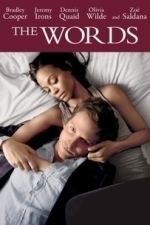Search

Westpac Mobile Banking
Finance and Utilities
App
With Westpac Mobile Banking you can take your bank with you wherever you go. Key features •...

Halifax Mobile Banking
Finance and Business
App
Our Mobile Banking app can do everything you’d expect, maybe a little extra. And you can use it...

Dingtone - WiFi Calling & Text
Social Networking and Productivity
App
Free WiFi phone calls & text messages! Make clear calls on a new line over WiFi, 3G/4G data network...
Movie Metropolis (309 KP) rated Ocean’s 8 (2018) in Movies
Jun 10, 2019
Light and breezy but utterly forgettable
It’s a peculiar state of affairs, the film industry that is. While reboots, remakes, prequels and sequels seem to be garnering much disdain from the movie-going audience of late, studios still push ahead with them regardless.
I mean, look at poor Disney and the performance of Solo: A Star Wars Story if you need any indication of a tiring audience. Female-led reboots are all the rage now too with Paul Feig’s Ghostbusters being met with a dreadful run at the box office despite decent critical responses. Next up, we’ve got Ocean’s 8, a sequel no-one was really asking for but got anyway. Is it worth a watch?
Five years, eight months, 12 days and counting – that’s how long Debbie Ocean (Sandra Bullock) has been devising the biggest heist of her life. She knows what it’s going to take – a team of the best people in the field, starting with her partner-in-crime Lou Miller (Cate Blanchett). Together, they recruit a crew of specialists, including jeweller Amita, street con Constance, suburban mom Tammy (Sarah Paulson), hacker Nine Ball (Rihanna), and fashion designer Rose (Helena Bonham Carter). Their target: a necklace that’s worth more than $150 million.
Gary Ross, director of the first Hunger Games movie, takes over from Steven Soderbergh to helm a film that is perfectly passable popcorn fodder, but sadly nothing more. But, for the sake of this review, let’s start with the positives.
The cast is by far, the biggest selling point for this film. Filled to the brim with talent like Bullock, Blanchett and Paulson, it was always going to be a win-win situation pulling an ensemble like this together. Bullock is absolutely fabulous from the minute the film begins and Anne Hathaway is clearly having a ball playing an over-the-top version of herself. Helena Bonham Carter is surprisingly good as a failing Irish fashion designer and it’s always a joy seeing Sarah Paulson’s understated performances grace the big screen.
What’s not so good is the way the film treats its stars from different ethnicities however. Rihanna, Mindy Kaling (Amita) and Awkwafina (Constance) are sorely underused throughout. In fact, outside of Paulson, Awkwafina and Kaling provide the film with its most intriguing characters – but we learn very little about them apart from a few scenes studying their personal/professional lives.
It’s also best not to talk about James Corden and his hideously over-acted performance as fraud investigator John. Filled with cringeworthy dialogue, it’s a miracle his part is relatively short. Like a bad smell however, he lingers for much too long.
The biggest sin that Ocean’s 8 commits is its complete lack of plausibility
Then there’s the plot, or rather the script. In making these women the absolute best-of-the-best, there are no high stakes, no tension to be had or anything remotely resembling a narrow-escape.
There’s the obligatory ‘oh no’ moment as something looks like it’s going to go wrong, but it’s rectified so suddenly that any joy in watching the heist unfold is completely lost. Where the previous Ocean’s movies were riddled with tension, Ocean’s 8 is devoid of it.
Thankfully, the plan is fun if a little uninspiring to behold, filled with bland cinematography very similar to what was seen in the first Hunger Games film way back in 2012. It’s all just very staid, like the studio was simply ticking boxes on a checklist to make sure they got a film that would make them money, but was lacking anything in the way of originality.
But perhaps the biggest sin that Ocean’s 8 commits is its complete lack of plausibility. Article upon article has already been created in which writers dissect the film’s heist plan and come up with the same conclusion: it can’t be done. You don’t need those articles though, because the plot holes are big enough for anyone to see and that’s a real shame. This becomes increasingly evident in the film’s final 10 minutes which makes a mockery of everything that came before.
Overall, Ocean’s 8 is your typical summer blockbuster. It’s light, breezy and like a big tub of cottage cheese, devoid of any personality whatsoever. It’s saving grace is the cast. Managing to pull together an ensemble this good takes a lot of effort, and for that, it deserves some praise – faint praise, but praise nonetheless.
https://moviemetropolis.net/2018/06/21/oceans-8-review-light-and-breezy-but-utterly-forgettable/
I mean, look at poor Disney and the performance of Solo: A Star Wars Story if you need any indication of a tiring audience. Female-led reboots are all the rage now too with Paul Feig’s Ghostbusters being met with a dreadful run at the box office despite decent critical responses. Next up, we’ve got Ocean’s 8, a sequel no-one was really asking for but got anyway. Is it worth a watch?
Five years, eight months, 12 days and counting – that’s how long Debbie Ocean (Sandra Bullock) has been devising the biggest heist of her life. She knows what it’s going to take – a team of the best people in the field, starting with her partner-in-crime Lou Miller (Cate Blanchett). Together, they recruit a crew of specialists, including jeweller Amita, street con Constance, suburban mom Tammy (Sarah Paulson), hacker Nine Ball (Rihanna), and fashion designer Rose (Helena Bonham Carter). Their target: a necklace that’s worth more than $150 million.
Gary Ross, director of the first Hunger Games movie, takes over from Steven Soderbergh to helm a film that is perfectly passable popcorn fodder, but sadly nothing more. But, for the sake of this review, let’s start with the positives.
The cast is by far, the biggest selling point for this film. Filled to the brim with talent like Bullock, Blanchett and Paulson, it was always going to be a win-win situation pulling an ensemble like this together. Bullock is absolutely fabulous from the minute the film begins and Anne Hathaway is clearly having a ball playing an over-the-top version of herself. Helena Bonham Carter is surprisingly good as a failing Irish fashion designer and it’s always a joy seeing Sarah Paulson’s understated performances grace the big screen.
What’s not so good is the way the film treats its stars from different ethnicities however. Rihanna, Mindy Kaling (Amita) and Awkwafina (Constance) are sorely underused throughout. In fact, outside of Paulson, Awkwafina and Kaling provide the film with its most intriguing characters – but we learn very little about them apart from a few scenes studying their personal/professional lives.
It’s also best not to talk about James Corden and his hideously over-acted performance as fraud investigator John. Filled with cringeworthy dialogue, it’s a miracle his part is relatively short. Like a bad smell however, he lingers for much too long.
The biggest sin that Ocean’s 8 commits is its complete lack of plausibility
Then there’s the plot, or rather the script. In making these women the absolute best-of-the-best, there are no high stakes, no tension to be had or anything remotely resembling a narrow-escape.
There’s the obligatory ‘oh no’ moment as something looks like it’s going to go wrong, but it’s rectified so suddenly that any joy in watching the heist unfold is completely lost. Where the previous Ocean’s movies were riddled with tension, Ocean’s 8 is devoid of it.
Thankfully, the plan is fun if a little uninspiring to behold, filled with bland cinematography very similar to what was seen in the first Hunger Games film way back in 2012. It’s all just very staid, like the studio was simply ticking boxes on a checklist to make sure they got a film that would make them money, but was lacking anything in the way of originality.
But perhaps the biggest sin that Ocean’s 8 commits is its complete lack of plausibility. Article upon article has already been created in which writers dissect the film’s heist plan and come up with the same conclusion: it can’t be done. You don’t need those articles though, because the plot holes are big enough for anyone to see and that’s a real shame. This becomes increasingly evident in the film’s final 10 minutes which makes a mockery of everything that came before.
Overall, Ocean’s 8 is your typical summer blockbuster. It’s light, breezy and like a big tub of cottage cheese, devoid of any personality whatsoever. It’s saving grace is the cast. Managing to pull together an ensemble this good takes a lot of effort, and for that, it deserves some praise – faint praise, but praise nonetheless.
https://moviemetropolis.net/2018/06/21/oceans-8-review-light-and-breezy-but-utterly-forgettable/
Gareth von Kallenbach (980 KP) rated The Words (2012) in Movies
Aug 7, 2019
On paper, The Words is a film that is better suited as a literary novella. In print, we, as readers, are often granted insight to our characters thoughts and motivation that is frequently lost on film or delivered in a lackluster voiceover that most critics deem as lazy film making. Furthermore, the story within a story, within a story approach in film often leaves the audience with uninteresting shells of characters and can make a story forgettable at best.
Given these reasons, it is easy to see why many would choose to undertake a less ambitious story for their directorial debut. That group does not include co-writer-directors Brian Klugman and Lee Sternthal. This duo is actually successful at tackling this dangerous story-within-a-story film device by keeping it simple. Focusing on the main characters of each story and their motivation, while tying each together with some common themes like love, what it means to write something great, and how far the need for success will drive the characters.
The movie begins with highly successful author Clay Hammond (Dennis Quaid) conducting a reading of his latest novel The Words. Among his audience is literary grad student and adoring fan, Daniella (Olivia Wilde), who has aspirations of picking the brain of the man that authored her favorite stories and perhaps getting involved romantically. As Hammond begins to read his story we are introduced to the tale of starving writer Rory Jensen (Bradley Cooper) and his wife Dora (Zoe Saldana). The two are a young couple in love, trying to get on their feet while Rory struggles with multiple rejections of his novels, until he is finally forced to come to grips with his own limitations as an artist and a writer.
As he settles into life and a job as a mail clerk at a publishing firm, he finds a lost manuscript in a vintage leather briefcase that Dora had purchased for him during their honeymoon in Paris. That story turns out to be something that moves him to tears. It is the final thing in his realization that he will never be the great writer that he thought he was, the great writer that wrote this anonymous story. In an effort to feel and try to understand what it is like to create something great, Rory decides to retype the novel word for word on his laptop if only to admire the beautiful story that he had instantly fallen in love with. When Dora mistakenly reads the novel, she encourages him to submit it to a publisher. Before he can tell her the truth, his world is transformed into the life he had always imagined he would have for himself and Dora as the novel gains him both great literary and commercial success. And finally, now that his star has risen he can get his own novel published.
Enter Jeremy Irons as the old man who reveals himself to Rory as the true author of his story. The old man feels compelled to explain to Rory the tragic origin of the story that has become the young author’s success. Irons steals every second he is on screen as his delivery of the old man oozes with the intellectual style that has been his trademark over the years. Like Rory, we are helpless to do nothing but listen and get lost in the words of his story as if he was sitting next to us and telling the story in real life.
The old man reveals that the novel is the result of great love and pain that his younger self (Ben Barnes) and the love of his life Celia (Nora Arnezeder) endured. While I am not familiar with Barnes’ and Arnezeder’s work, their performance as the younger couple in Irons’ story had a genuine connection. And while this love story does not seem to be anything new when it comes to film, it served its purpose by strengthening the other stories, showing how a great story can be mused from someplace unexpected, even if only once.
With Rory now confronted with his deceitful success, he struggles to decide how to make things right and live with himself as a fraud. It’s at this point the film subtly suggest that Hammond’s story of Rory may actually be a disguised autobiography.
As Rory, Bradley Cooper gives perhaps his best performance to date. I feel that despite his poor and deceitful decision, at no point does he lose the audience. With the help of a strong and emotionally charged performance by Zoe Saldana, we experience Cooper’s honest plight and can understand the events that unfold around him. He is effective as a man who genuinely believes he does not deserve the success that he stole. Without a doubt, this will be a surprising role for those fans who only know Cooper from the humorous characters he plays in The Hangover and most recently Hit and Run. I hope this is the beginning of growth in his craft beyond the charming, confident character we have seen in Limitless and perhaps into a deeper emotional actor.
The weakest part of this film is the story of Clay Hammond and Daniella. Dennis Quaid is quite unlikable as Hammond. He is monotone in his readings and the prose of his story is mediocre at best. While the film drops hints that Hammond’s story of Rory is autobiographical it makes sense that Quaid’s character is played this way. He succeeds in helping create the notion that Hammond is unworthy of the success his character has enjoyed. But something about his performance is so unlikable that even when his character has a redeeming moment, it is lost on an audience that may not care enough about him for it to work.
To add to this dislike of Quaid, Olivia Wilde seems out of place as the character Daniella. It is not that her performance is bad, it is just that every time they showed her as the starry-eyed fan who is love struck for Hammond, she just seemed out of place. Additionally there did not seem to be any connection between Daniella and Hammond in the way the other characters’ connections helped strengthen their performances.
In the end, I enjoyed this movie more than I expected. Visually the Montreal backdrop does an excellent job as both New York and Paris. And the continual piano score helps blend the stories. The simple focus on the main characters helped maintain the three different stories and keep the overall pacing of the movie in order. In addition, the solid to exceptional performances also helped to keep the film focused and avoided the empty shell of characters that most movies of this nature create. That being said, this movie is not for everyone, but those looking for a change of pace from the summer blockbusters season should consider this film.
Given these reasons, it is easy to see why many would choose to undertake a less ambitious story for their directorial debut. That group does not include co-writer-directors Brian Klugman and Lee Sternthal. This duo is actually successful at tackling this dangerous story-within-a-story film device by keeping it simple. Focusing on the main characters of each story and their motivation, while tying each together with some common themes like love, what it means to write something great, and how far the need for success will drive the characters.
The movie begins with highly successful author Clay Hammond (Dennis Quaid) conducting a reading of his latest novel The Words. Among his audience is literary grad student and adoring fan, Daniella (Olivia Wilde), who has aspirations of picking the brain of the man that authored her favorite stories and perhaps getting involved romantically. As Hammond begins to read his story we are introduced to the tale of starving writer Rory Jensen (Bradley Cooper) and his wife Dora (Zoe Saldana). The two are a young couple in love, trying to get on their feet while Rory struggles with multiple rejections of his novels, until he is finally forced to come to grips with his own limitations as an artist and a writer.
As he settles into life and a job as a mail clerk at a publishing firm, he finds a lost manuscript in a vintage leather briefcase that Dora had purchased for him during their honeymoon in Paris. That story turns out to be something that moves him to tears. It is the final thing in his realization that he will never be the great writer that he thought he was, the great writer that wrote this anonymous story. In an effort to feel and try to understand what it is like to create something great, Rory decides to retype the novel word for word on his laptop if only to admire the beautiful story that he had instantly fallen in love with. When Dora mistakenly reads the novel, she encourages him to submit it to a publisher. Before he can tell her the truth, his world is transformed into the life he had always imagined he would have for himself and Dora as the novel gains him both great literary and commercial success. And finally, now that his star has risen he can get his own novel published.
Enter Jeremy Irons as the old man who reveals himself to Rory as the true author of his story. The old man feels compelled to explain to Rory the tragic origin of the story that has become the young author’s success. Irons steals every second he is on screen as his delivery of the old man oozes with the intellectual style that has been his trademark over the years. Like Rory, we are helpless to do nothing but listen and get lost in the words of his story as if he was sitting next to us and telling the story in real life.
The old man reveals that the novel is the result of great love and pain that his younger self (Ben Barnes) and the love of his life Celia (Nora Arnezeder) endured. While I am not familiar with Barnes’ and Arnezeder’s work, their performance as the younger couple in Irons’ story had a genuine connection. And while this love story does not seem to be anything new when it comes to film, it served its purpose by strengthening the other stories, showing how a great story can be mused from someplace unexpected, even if only once.
With Rory now confronted with his deceitful success, he struggles to decide how to make things right and live with himself as a fraud. It’s at this point the film subtly suggest that Hammond’s story of Rory may actually be a disguised autobiography.
As Rory, Bradley Cooper gives perhaps his best performance to date. I feel that despite his poor and deceitful decision, at no point does he lose the audience. With the help of a strong and emotionally charged performance by Zoe Saldana, we experience Cooper’s honest plight and can understand the events that unfold around him. He is effective as a man who genuinely believes he does not deserve the success that he stole. Without a doubt, this will be a surprising role for those fans who only know Cooper from the humorous characters he plays in The Hangover and most recently Hit and Run. I hope this is the beginning of growth in his craft beyond the charming, confident character we have seen in Limitless and perhaps into a deeper emotional actor.
The weakest part of this film is the story of Clay Hammond and Daniella. Dennis Quaid is quite unlikable as Hammond. He is monotone in his readings and the prose of his story is mediocre at best. While the film drops hints that Hammond’s story of Rory is autobiographical it makes sense that Quaid’s character is played this way. He succeeds in helping create the notion that Hammond is unworthy of the success his character has enjoyed. But something about his performance is so unlikable that even when his character has a redeeming moment, it is lost on an audience that may not care enough about him for it to work.
To add to this dislike of Quaid, Olivia Wilde seems out of place as the character Daniella. It is not that her performance is bad, it is just that every time they showed her as the starry-eyed fan who is love struck for Hammond, she just seemed out of place. Additionally there did not seem to be any connection between Daniella and Hammond in the way the other characters’ connections helped strengthen their performances.
In the end, I enjoyed this movie more than I expected. Visually the Montreal backdrop does an excellent job as both New York and Paris. And the continual piano score helps blend the stories. The simple focus on the main characters helped maintain the three different stories and keep the overall pacing of the movie in order. In addition, the solid to exceptional performances also helped to keep the film focused and avoided the empty shell of characters that most movies of this nature create. That being said, this movie is not for everyone, but those looking for a change of pace from the summer blockbusters season should consider this film.

